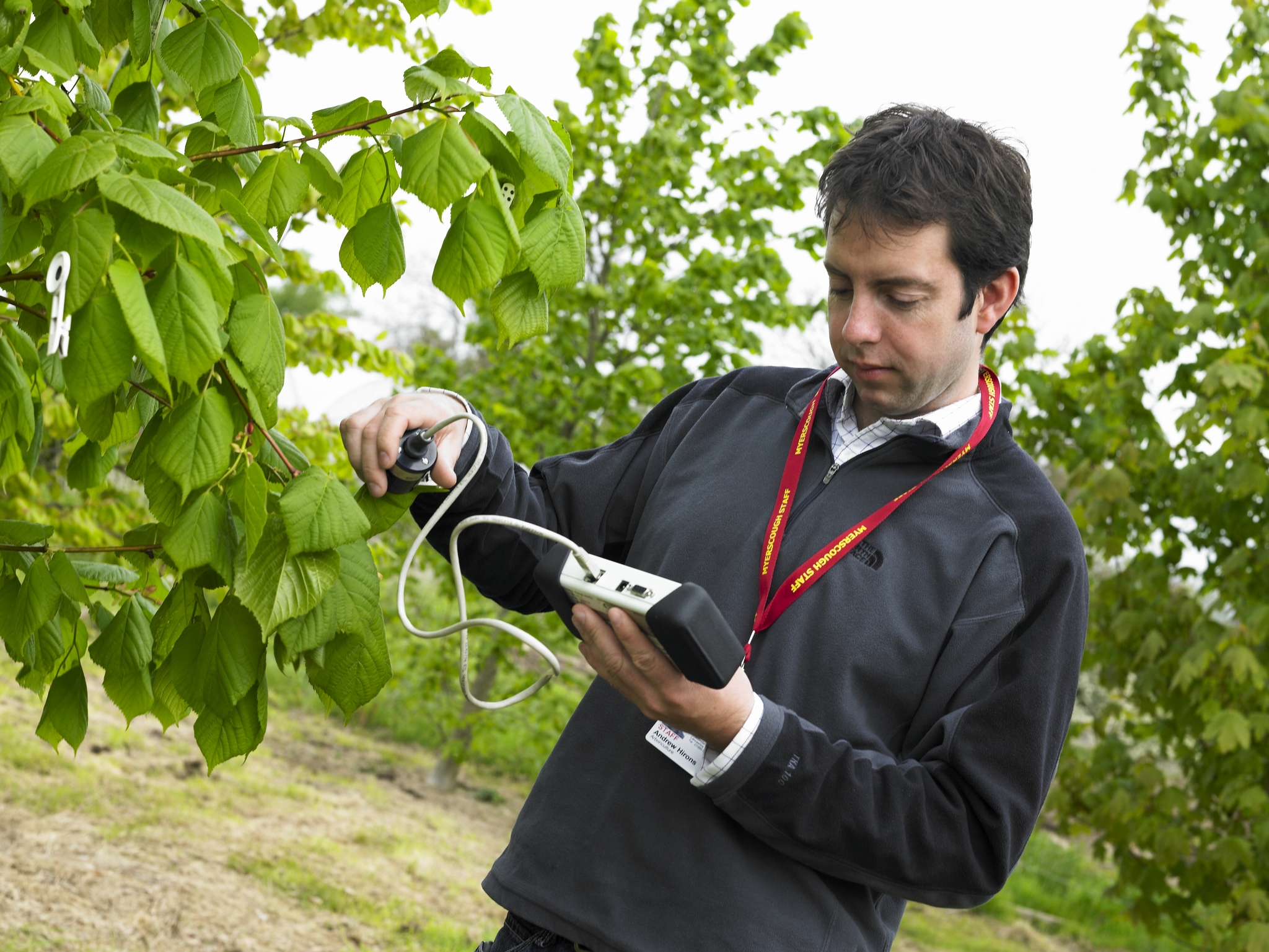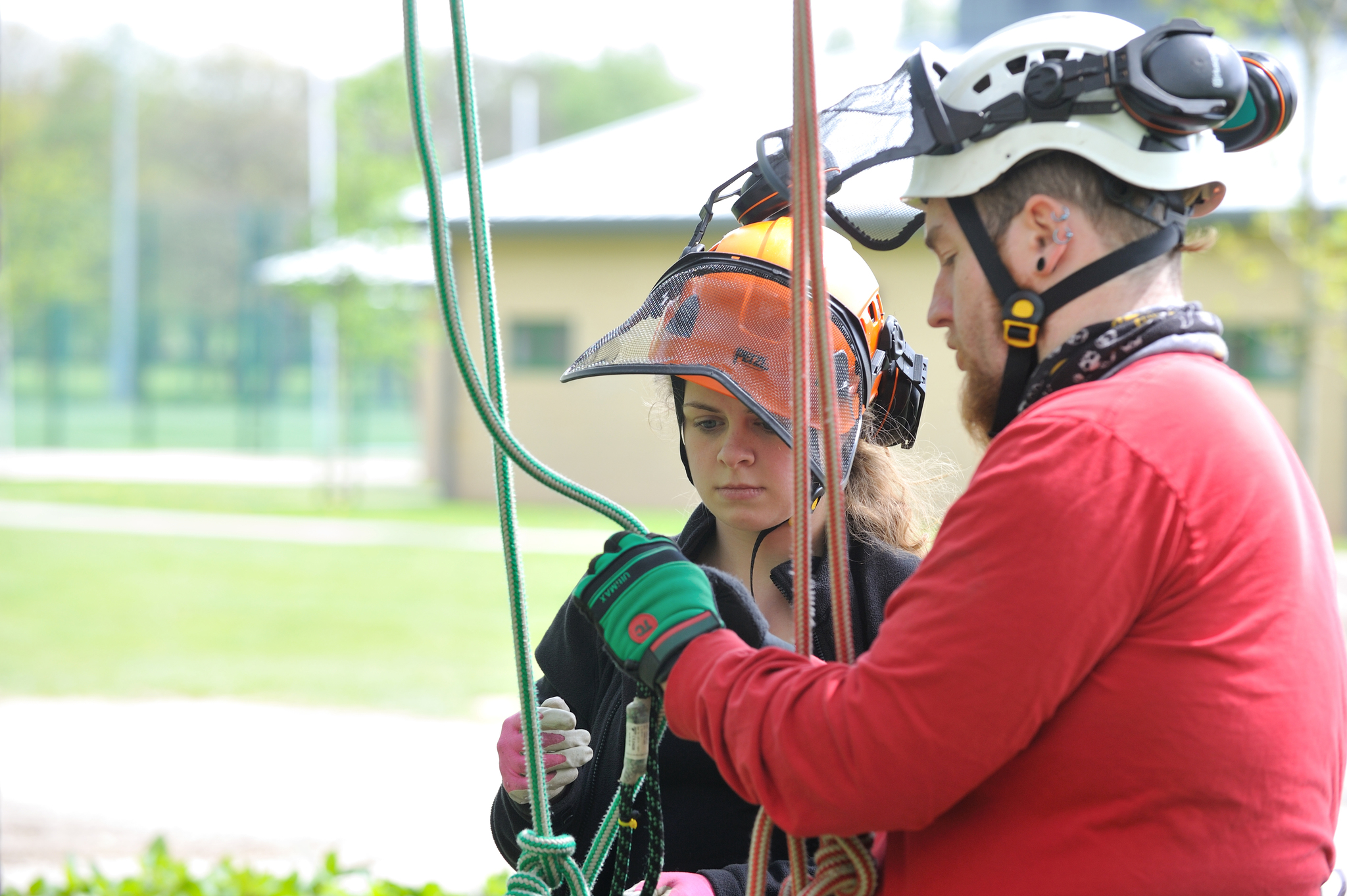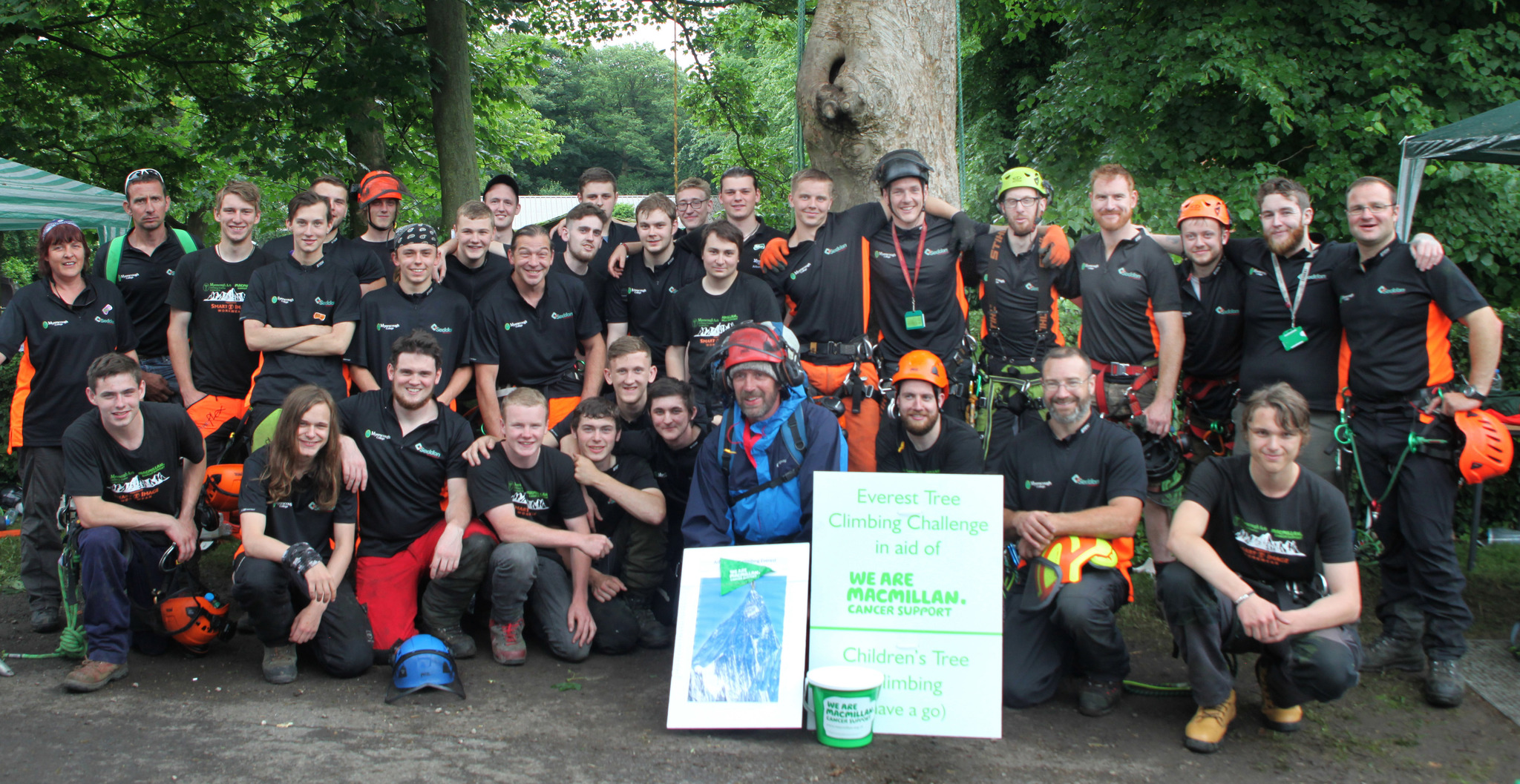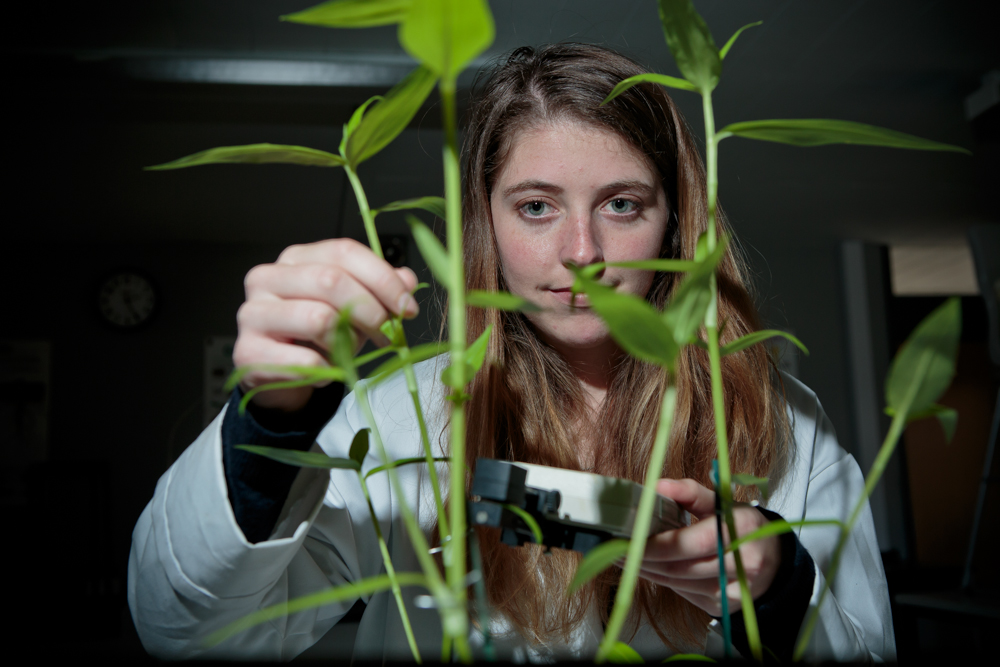Course modules
Year 1
Arboricultural Practices
Sustainable practices within the arboricultural industry will be promoted by providing students with a comprehensive understanding of current techniques and equipment used in a range of arboricultural operations. Students will also be introduced to methods statements and work specifications, and the use of standards and best practice. Tree survey data will be collected and analysed using the most up to date methods including GIS/GPS technology.
Dendrology
This module aims to provide students with the necessary botanical skills to be able to identify a mixture of trees, shrubs, herbaceous plants and fungi of significance in arboriculture. The module will explore the history of plant taxonomy and current developments in this area, including the study of plant introductions, botanical gardens and arboreta. The qualities and character of particular tree species, including their ecology, form, function and cultural associations will be studied in detail.
Tree Production, Establishment and Biosecurity
The successful production and establishment of trees is of critical importance in forestry and arboriculture. This module provides a comprehensive introduction to current industry standards in the production and planting of trees, tree planting techniques, and workable solutions to the problems faced when planting and establishing trees in challenging locations. Pests and diseases will be discussed along with an overview of biosecurity issues including the nature of the threats posed by alien species, how to reduce infection and minimise the spread of tree pathogens.
Academic and Vocational Skills
Working in industry will require arboriculturalists to develop a range of practical and professional skills. This module provides students with first-hand work related experience of a range of practical and technical skills as well as developing their ability to present information in a suitable academic and professional style. Students will be encouraged to evaluate and reflect on their own personal development throughout the module. The module will provide the foundation for further development of individual skills through independent study in the ‘Industry Project’ module.
Essential Plant and Soil Science
Plants and soils have a very close relationship. This module will look at the biochemistry and physiology of plants and how these are affected by the plants environment. In particular it will consider the characteristics of the soil environment and how these impact on plant growth and land use. The mechanisms by which plants can express the genetic information coded in their DNA and pass this on to the next generation will also be explained.
Applied Tree Biology
High quality tree care and management is dependent on a good understanding of tree biology. Applied tree biology will develop fundamental biological knowledge of trees and examine how this relates to the management of tree crowns and root systems. This will be achieved by exploring tree anatomy and morphology of trees as well as the relationship they have with their environment.
Entry requirements & additional information
- Entry requirements
- Learning and assessment
- Progression
- Careers
- Professional accreditations
- Special requirements
Entry requirements
5 GCSE passes at Grade C (4) or above (including Maths and English or equivalent)
Plus 48 UCAS Tariff points from one or more of the following:
- 2 A Levels (A2), at least one at C or above
- BTEC/C&G Level 3
- 2 Scottish Highers at C or above
- 3 Irish Highers at C or above
- International Baccalaureate at 24 points
- NVQ Level 3 in a relevant discipline
- Applicants who believe they may be eligible for Accreditation of Prior Certificated and/or Experiential Learning (APCL/APEL) for certain modules will be considered on an individual basis.
- AS Levels, BTEC Subsidiary Diploma and Scottish Intermediate 2s may be used to contribute to entry requirements but they are not sufficient for entry on their own. Alternative equivalent qualifications will also be considered positively.
- Access to HE Diploma in a relevant discipline
Applicants for whom English is a second language must be able to demonstrate proof of International English Language Testing System (IELTS) at Level 6.0 (with no component score lower than 5.5) or equivalent.
All offers may be subject to successful interview
Learning and assessment
Learning activities on the course are diverse, including lectures, seminars, tutorials, practical sessions and workshops.
Students are expected to undertake extensive independent study and research to support lectures, seminars and assessments. Group work and group presentations form an important part of the course. Students will have access to specialist IT hardware and software, an on-line learning environment and reference facility.
This course is designed to ensure a wide variety of assessment types are undertaken, many of which directly reflect industry-related documentation and practices. These assessment methods will include technical reports, portfolios, individual presentations, laboratory/practical reports and identification tests.
Additional Information:
Modules may include guest speakers of standing within the industry or off-site visits to facilities such as arboretums, trade fairs and areas of environmental significance.
There is also additional cost for students who wish to undertake training towards nationally recognised practical skills and competences through the Academic and Vocational Skills. Chainsaw trousers and boots are required for students who wish to take advantage of this practical training and many students choose to purchase their own.
Advice and guidance will be given within the early weeks to ensure correct personal protective equipment is purchased. Students who wish to undertake the external NPTC competence tests following the training will also incur an additional cost for the assessment.
What Work Experience can I get?
The Academic and Vocational Skills module will use a relevant working environment to provide the opportunity for students to develop technical skills and help prepare them for employment.
There is no formal industry placement on this course but there may be opportunities at the end of the course, for students to undertake work experience or internships with employers throughout the UK and overseas.
Progression
On successful completion of the course, students may apply to study the second year of the Foundation Degree.
Careers
There are opportunities in the arboriculture industry for students with a Foundation Certificate.
Examples of possible careers include:
- Assistant Arboricultural Officer
- Tree Surveyor
- Climbing Arborist
- Team Leader
Professional accreditations
Arboriculture degree courses at Myerscough College have been accredited by the Institute of Chartered Foresters. This Foundation Certificate provides an opportunity to progress on to completing an accredited degree course.
Special requirements
Extra Costs:
Additional costs for items that are essential for the course:
- Chainsaw boots and trousers - £500 approx.
Additional costs for opportunities and items that are optional for the course include:
- Assessments for Industry Certificate of Competence - £400 approx






